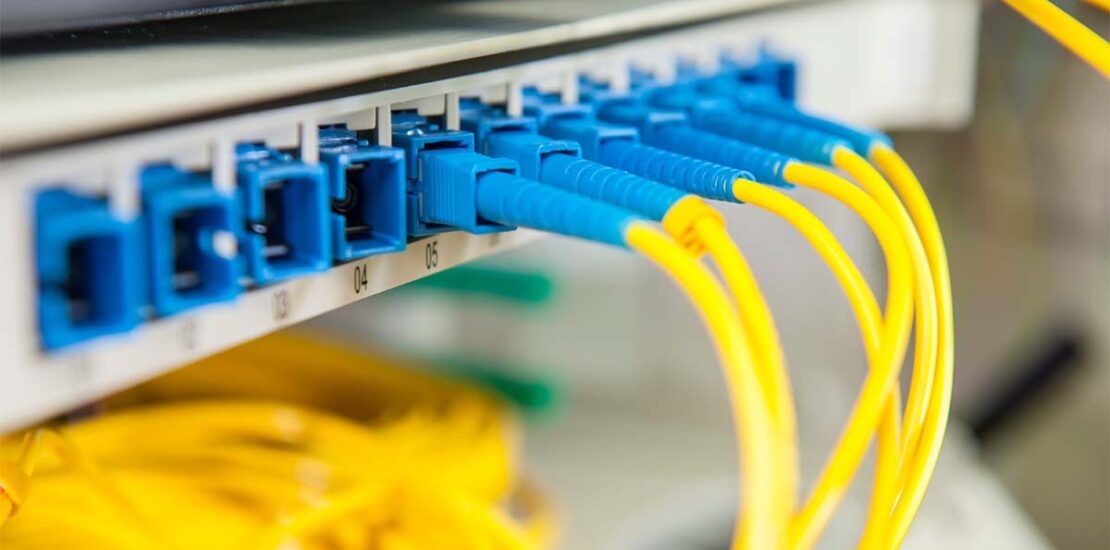- November 21, 2022
- Posted by: John
- Category: Tech Solutions

As the world becomes increasingly reliant on information, data cabling has become an integral part of many companies’ operations. The ability to gather and process information quickly and efficiently has allowed companies to become more efficient than ever before, and there’s no end in sight for that trend.
While having these kinds of systems in place can be incredibly important to your company, it’s also important that you choose the right kind of system to suit your needs and budget.
Data Cabling: Different Types of Data Cables
There are a few different types of data cables that can be used to wire up your home or office. Most people are familiar with the Cat5 and Cat6 cables, which are typically used in Ethernet networks.
A newer type of data cable is the Cat7 cable, which has an even higher bandwidth than the Cat6. This type of data cable can handle Gigabit speeds and beyond, with some types capable of handling 10 Gigabit speeds.
Data Cabling Can Lead to Reduced Costs
Structured data cabling systems lead to reduced costs in business. They are designed with the latest in data transfer, allowing for increased bandwidth and uptime. Plus, they are easier to install and maintain. When your business needs reliable data cabling systems that won’t break the bank, structured cable is the way to go.
These cables have been specially engineered to support today’s high-speed digital data transmission requirements. They provide higher bandwidth and more efficient transmissions than other traditional cable setups.
In addition, these cables are pre-installed into the walls and ceilings of office spaces, making them much easier to install and less costly than standard cables. With such a low cost per foot, you can cover all areas in your office without breaking the budget.
Increased Efficiency
Structured data cabling systems make the network more efficient because they separate voice, data and video transmissions. This can lead to increased efficiency in business because it means that there is less interference with signals.
For example, if you are trying to send an email, you can keep talking on the phone without having any problems with your signal. This also means that more people can be using the same line at one time without any interruption in service.
Improved Performance
Structured data cabling systems can lead to improved performance in business. For example, structured data cabling systems can increase data speed and reduce the overall cost of network installations. This is possible because most networks use one cable for both power and signal. If a wire goes bad, all communications are lost until the problem is fixed.
With a structured data cabling system, there is no need to worry about that because each cable has its own power source and signaling capability. So if a wire goes bad, it will not cause communication issues as long as the other wires are operational.
Another benefit of structured data cabling systems is reduced installation time and costs. Structured data cabling systems save on installation time by eliminating the need for labor-intensive work such as pulling cables around corners or through tight spaces. Additionally, they have proven to be more reliable than conventional cable runs which reduces maintenance costs over time.
Enhanced Scalability
Another benefit of structured cabling systems is that they often can lead to enhanced scalability in your business. This is because they are more reliable and easier to manage when compared to unstructured data cabling.
When you have a structured data cabling system, the cables are all neatly coiled and labeled so that they can be accessed quickly and easily. This means that it takes less time to find the right cable when you need it, making your business more efficient in the long run.
Future-Proofing
Structured data cabling systems help future-proof a business by providing an infrastructure that can evolve with the changing needs and demands. They also provide a means to easily upgrade equipment.
For instance, if you’re currently using copper wiring but decide to switch to fiber optic cables in the future, you’ll need a structured cabling system for your new wires to run through. These systems are useful for today’s businesses, but even more so for tomorrow’s.
Conclusion
Structured cabling systems can be beneficial to businesses of all sizes. If you’re looking for a professional data cabling service that can help your business succeed, Contact us today! At Tekulus, we specialize in all aspects of data cabling and work with businesses of all sizes to deliver a cost-effective solution. Call now, 510-592-8530.
